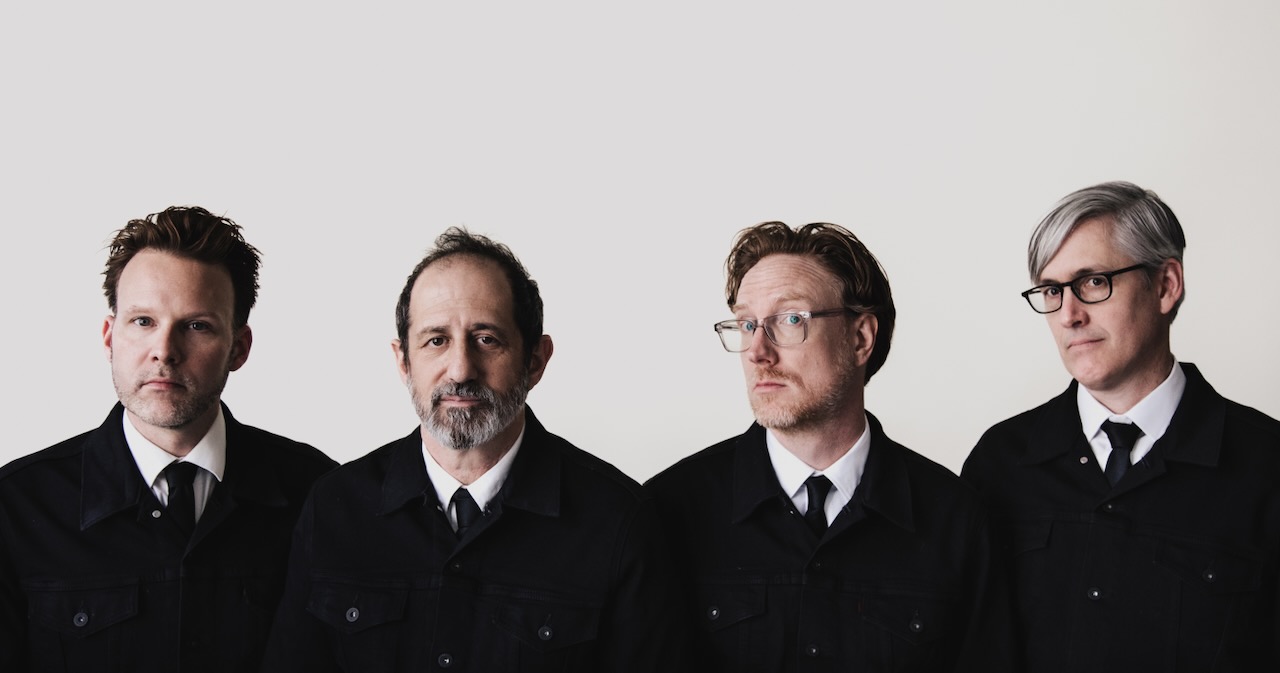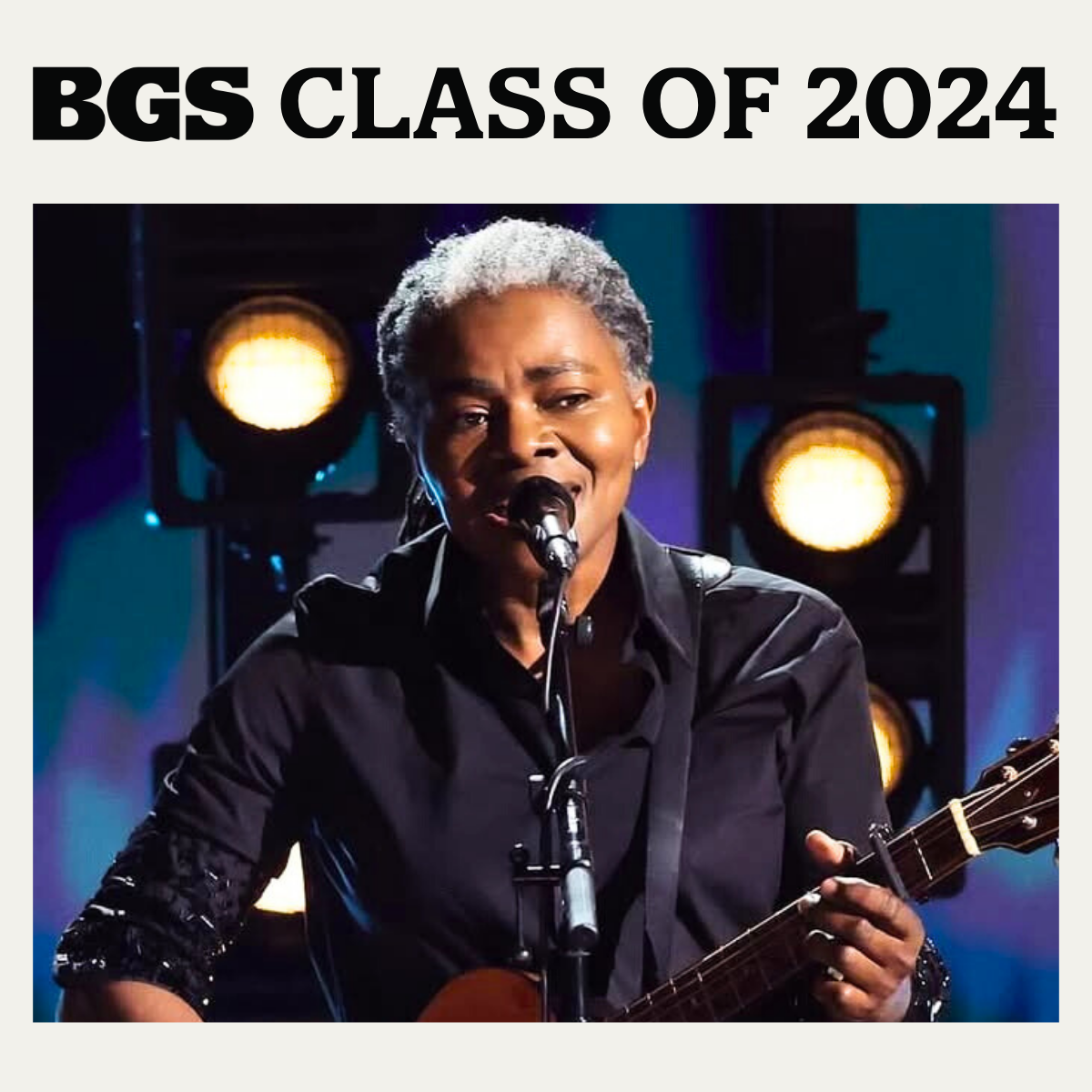Last year, my bandmates and I went into the woods to a studio that wasn’t a studio to record this collection of songs, Did You Do The Thing We Talked About? (Out February 16.) Some were songs from before the pandemic that meant a lot to us, and others were new songs I needed to write coming out of it.
Usually, when you go into the studio, you’re trying to maximize control, right? You put everyone in different rooms, isolate each sound, get a basic track, then have everyone redo their part until they’re happy with it. Then you add other instruments, effects, color.
We didn’t do that for this album. Coming out of the pandemic, we needed to share space again. We needed to be in the same room, to see each other’s fingers, to watch the crumbs clinging for dear life to each other’s shirts.
I wanted to make a record that sounded like the four of us communing.We all set up in one big room. Made baffles out of couches and blankets, like you do. We recorded in whole takes without overdubs or extra instruments. Our guitarist, Eben Levy, engineered the tracking. Our saxophonist, Vito Dieterle, and I did the cooking. Ian Riggs, our bass player, kept the tempos and the peace. The album sounds a lot like what our band sounds like on any given night after playing together for 20 years, and that’s just what we were after.
In creating this Mixtape of songs recorded “in the same room,” I was just trying to think of recordings by artists I revere that contain a sense of intimacy and life – I can’t say for sure how they were all recorded. More than anything, these songs make me feel like I’m listening to humans saying human things to other humans. That always makes me feel less alone in the world. – Ethan Lipton
“Walter Johnson” – Jonathan Richman
This is an a cappella recording, so how could it not be intimate? Still, I love this song about one of baseball’s all-time greats, and on this version, Richman sounds like he’s making it all up — lyrics, melody, tempo — as he goes. No one else could do a recording quite like this. Richman occupies a unique space in music, blending folk, garage rock, and proto-punk (?), but it’s his chops as goofball raconteur that I love most. This song also reminds me of my big brother, who introduced me to Richman and a lot of my favorite songwriters.
“Christmas Card from a Hooker in Minneapolis” – Tom Waits
Two pianos, Tom (acoustic) and George Duke (electric). And they create a whole universe together. To me it sounds like Tom is drunk and George is trying to hold him up. There’s so much air and grease and love in it. Blue Valentine isn’t my favorite Waits album — there are too many other exceptional ones — but I’m devoted to the epic narratives of this song and “Kentucky Avenue.” And “Christmas Card” has my favorite lyric ever: “I don’t have a husband / he don’t play the trombone.”
“I’ve Loved You All Over the World” – Willie Nelson
A nearly perfect album, and of course Daniel Lanois got Willie to record it in an old Mexican movie theater. It sounds like every musician on this track is dialed in to every other. I mean, if Bobbie Nelson’s clankity piano doesn’t break your heart, I don’t know what will. And Mickey Raphael’s harmonica is something I hear in my dreams. The drumming takes us into this whole other world. Lanois once said: “We had some nice risers set up for Willie and Emmylou [Harris] and the drummers. So we had a nice time setting it up like a club, and it sounds as though the fun that you’re hearing in the track was definitely in the building at the time.” Amen to that.
“Stardust” – Hoagy Carmichael
I don’t know how this recording was made, but the intimacy of it feels so honest and assured, you almost can’t believe there was a time when it didn’t exist. Nobody sings Carmichael’s songs like he does, and this version is full of his idiosyncratic phrasing. It’s hard not to see Hoagy sitting at the piano when you hear it. And the song itself, I mean ranking is ridiculous, but it has to be one of the best ever written.
Here are a couple of faves from our saxophonist, Vito Dieterle:
“Alone Together” – Lee Konitz, Brad Mehdlau, Charlie Haden
Lee Konitz was a huge inspiration to me. A true improviser. Brad Mehldau took the scene by storm with his virtuosity, but I always knew his roots were in the old masters, and this group showcases all facets of Brad’s talent in ways that few other albums do. And Charlie Haden brings everybody together in a grounding way like only he could.
This group was together only briefly but it captured the essence of playing jazz live and being in the moment with little ego, with true spontaneity and freedom within the confines of the traditional forms of the American songbook. These three were playing live all in the same room/club. The result was just magic. And pure sensitivity and support. I encourage everyone to explore the entire record.
“Fall” – Miles Davis Quintet
This composition by Wayne Shorter is a perfect example of what I consider a “musical trust fall.” A moment when you know everyone in that room has your back, so no matter what, you feel like you can’t fail. The tempo here is liquid, and the chances taken are mighty and bold. You can feel each musician digging into and supporting each other’s choices, and in some cases making those choices even more bold and beautiful in real time. This track changed my life. The first piece of music that truly made me aware of teamwork being the dream work, in a musical context.
Our bass player Ian Riggs wrote about two of his favorites, including another classic by Tom Waits: (The four of us come from different points of musically, but it’s rare for only one of us to like a particular song. In almost every case, one or more of the other three has big love for the same tune.)
“Semi Suite” – Tom Waits
From the quiet count-off to the rousing peak, this song is a wonderful instance of a group of people listening and breathing with each other in the same room. Bones Howe, the producer on this (The Heart of Saturday Night) and other early Waits albums, came from a jazz background and preferred to record musicians that way, without separation. I suppose a multi-tracked version of this song could have also been great, but I’m sure glad they gave this way a shot first.
“Switch Blade” – Duke Ellington, Charles Mingus, Max Roach
The stories about these “Money Jungle” sessions are legendary. They say it wasn’t the best day for Charles Mingus. Apparently he packed-up and stormed out more than once. Duke Ellington and Max Roach (an idol and longtime friend of his) talked him into staying each time. Mingus’ playing is wildly erratic but also beautiful and full of raw feeling. Thank goodness for wise friends who ask you to stay, especially on the bad days.
And here are a couple of picks from Eben Levy, our guitarist.
“Little Ditty” – Cyrus Chestnut
Pianist Cyrus Chestnut’s 1993 album Revelation, with Christopher J. Thomas on bass and Clarence Penn on drums, feels so alive because it’s so live. The liner notes state, “Recorded live to two-track analog at Clinton Studios, Studio B on June 7 & 8, 1993. Complete takes only, with no additional mixing or editing.” It’s all tightrope playing and tightrope engineering. Everyone involved nails the landing, like Kerri Strug. There’s zero filler on this album, but the track “Little Ditty” kills me every time. When Chesntut goes into the very highest keys after the break at about 1:40, the swing is so hard and so light at the same time. Philippe Petit!
“Tight Like That” – Asylum Street Spankers
The 2004 album Mercurial by the Asylum Street Spankers was recorded live in a 100-year-old church direct to a 2-track reel-to-reel tape deck. I love how much the room itself is a voice on the album. The drums are way in the back. The singer is right up front. Wait, holy shit! That harmonica is right in my face! And check out the old 20s barn burner “Tight Like That.” Great solos, and the Spankers mix in some of Jim Carroll Band’s “People Who Died” just to fuck with me.
Now that I see the tunes everyone picked, I can’t wait to listen to this mix-tape!!! There are pieces of all of us in each of these songs. – Ethan Lipton
Photo Credit: David Goddard



